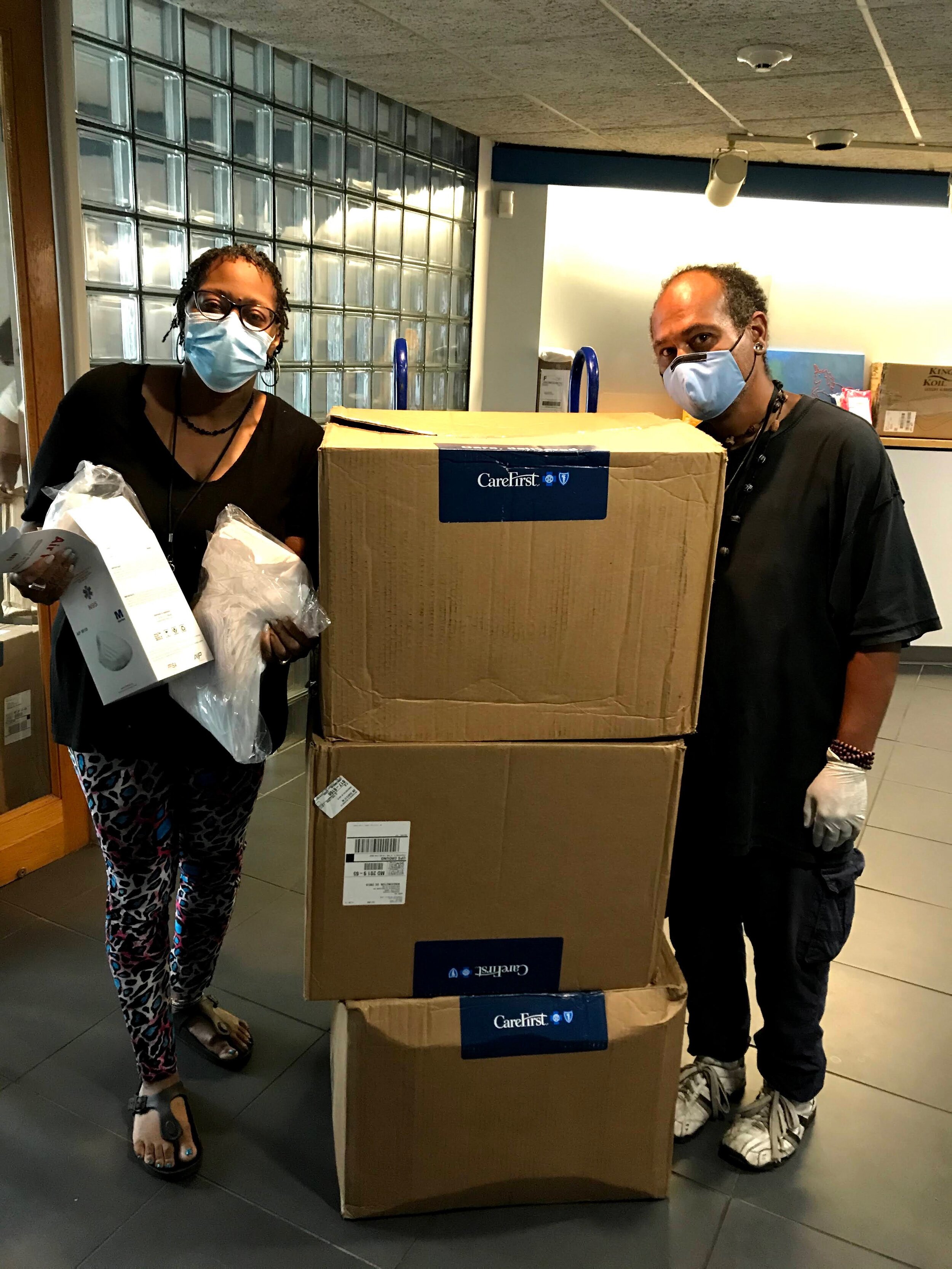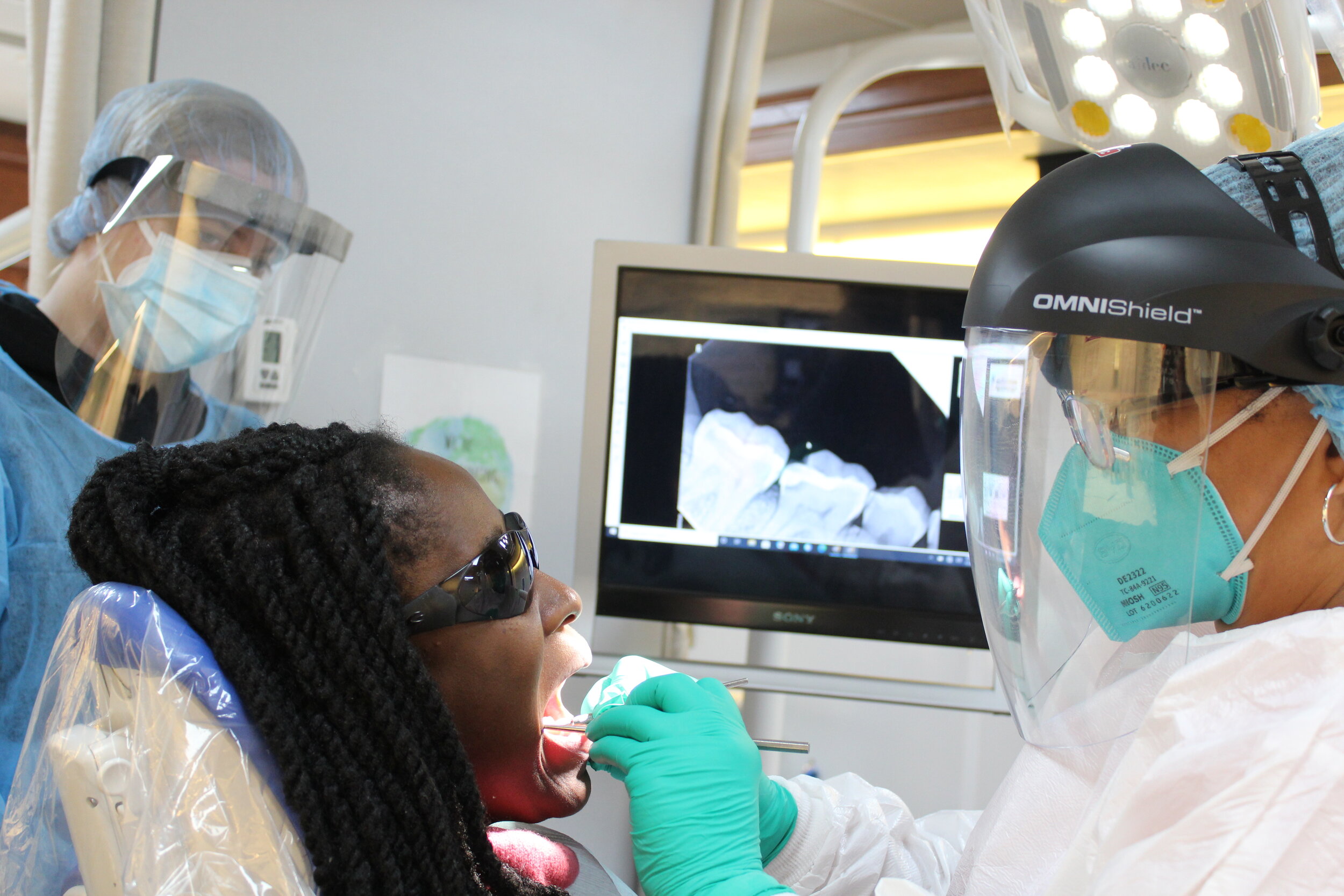These past several months, while exceptionally challenging at times, have also been inspiring. We’ve seen our community come together to care for our neighbors in need, springing into action to support those most adversely affected by the pandemic.
Through our COVID-19 Emergency Response Fund, were able to invest $10 million to support low-wage workers who have been laid off, expand access to medical care, provide shelter and services to people experiencing homelessness, increase food access, and so much more. This would not be possible without our compassionate donors – a diverse group of individuals and businesses who helped us mobilize $10 million for coordinated relief and recovery efforts. Thank you for standing with us to make a difference.
You can read about our impact here – and, below, learn more about how our nonprofit partners helped create this impact. Their stories of kindness and courage are truly inspiring.
CareerCatchers
With funding received from the COVID-19 Emergency Response Fund, CareerCatchers hired additional staff and part-time contractors so that the organization could expand its reach and serve more clients during the pandemic.
Notable milestones include:
Working with 355 clients to help them with upward mobility and stable employment
Increasing the number of clients participating in work skills and trainings programs by 200 percent
Helping more than 100 clients with unemployment insurance claims—through both one-on-one support and Zoom workshops
Acting as a processing agency for Montgomery County Government’s Emergency Assistance Relief Payment (EARP) program, providing immediate financial assistance to households not eligible for federal or state COVID-19 aid
CareerCatchers will continue to fulfill its critical mission—providing personalized and individualized career counseling for survivors of domestic violence, people experiencing homelessness, immigrants, people with disabilities, returning citizens, youth aging out of foster care, and disconnected youth.
Future Harvest
Future Harvest advances agriculture that sustains farmers, communities, and the environment through mini-cash grants to farmer entrepreneurs who do not qualify for federal stimulus programs.
Future Harvest combined its Greater Washington Community Foundation grant funds with other sources to create the “Feed the Need” Fund, which awarded more than $60,000 to 22 small-to mid-sized, financially struggling family farm operations—14 of whom were BIPOC farmers.
One grant recipient, Owl’s Nest Farm in Upper Marlboro, MD, grows a diverse array of vegetables on 4 ½ acres of land. “Last year, we made a commitment to see how we can share our produce with people who otherwise couldn't afford it.” Each week, Owl’s Nest Farm provides CSA shares to families at the Richardson Dwellings public housing complex.
Funding from the COVID-19 Emergency Response Fund will allow Future Harvest to continue advancing agriculture that sustains farmers, communities, and the environment.
New Futures
New Futures supports under-resourced young people who are pursuing community college as the launching point to further education and rewarding careers—young people who also provide in some way for their families or are their household’s primary financial provider.
In the earliest weeks of the COVID-19 crisis, many were laid off suddenly from part- or full-time jobs in the most vulnerable industries of food service, hospitality and retail, among others.
New Futures established a Scholar Emergency Fund to play a role in preventing Scholars’ sudden, short-term financial disruptions from cascading to devastating challenges that impacted their ability to persist in and complete their credentials. This fund is saving lives and preventing financial disaster.
“My family is so happy because of this support. Please, let all the New Futures personnel know that we are so grateful with this unconditional love and support.”
People for Change Coalition
Small businesses have been devastated by the COVID-19 pandemic, and pivoting business strategies has proven critical to staying afloat.
That’s why People for Change Coalition used its funding to create a COVID-19 Small Business Rescue (SBR) program—a program that ultimately helped 10 Prince George’s County small businesses and entrepreneurs develop a digital strategy to adjust to the new norms caused by Covid-19.
“Businesses were caught unexpectedly by Covid-19 and needed a rescue plan to keep their doors open, retain existing customers and clients, as well as secure new ones.”
The businesses who participated in SBR are using their new brand, look, and marketing materials to promote their business, get new clients and contracts, and increase their sales.



























